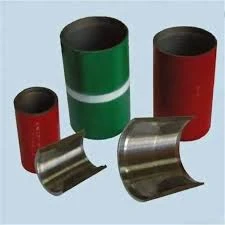- Afrikaans
- Albanian
- Amharic
- Arabic
- Armenian
- Azerbaijani
- Basque
- Belarusian
- Bengali
- Bosnian
- Bulgarian
- Catalan
- Cebuano
- Corsican
- Croatian
- Czech
- Danish
- Dutch
- English
- Esperanto
- Estonian
- Finnish
- French
- Frisian
- Galician
- Georgian
- German
- Greek
- Gujarati
- Haitian Creole
- hausa
- hawaiian
- Hebrew
- Hindi
- Miao
- Hungarian
- Icelandic
- igbo
- Indonesian
- irish
- Italian
- Japanese
- Javanese
- Kannada
- kazakh
- Khmer
- Rwandese
- Korean
- Kurdish
- Kyrgyz
- Lao
- Latin
- Latvian
- Lithuanian
- Luxembourgish
- Macedonian
- Malgashi
- Malay
- Malayalam
- Maltese
- Maori
- Marathi
- Mongolian
- Myanmar
- Nepali
- Norwegian
- Norwegian
- Occitan
- Pashto
- Persian
- Polish
- Portuguese
- Punjabi
- Romanian
- Russian
- Samoan
- Scottish Gaelic
- Serbian
- Sesotho
- Shona
- Sindhi
- Sinhala
- Slovak
- Slovenian
- Somali
- Spanish
- Sundanese
- Swahili
- Swedish
- Tagalog
- Tajik
- Tamil
- Tatar
- Telugu
- Thai
- Turkish
- Turkmen
- Ukrainian
- Urdu
- Uighur
- Uzbek
- Vietnamese
- Welsh
- Bantu
- Yiddish
- Yoruba
- Zulu
Exploring Innovations in Modern Pipe Mill Technology and Manufacturing Processes
The Role of Pipe Mills in Modern Manufacturing
In today’s industrial landscape, pipe mills occupy a crucial position, playing a vital role in the production of various types of pipes used across multiple sectors, including construction, oil and gas, and plumbing. These specialized facilities are equipped with advanced technology and automated systems designed to produce pipes with precision and efficiency.
At the core of a pipe mill’s operations is the process of forming raw steel into finished pipes
. The production typically begins with the procurement of semi-finished products such as hot-rolled coils. These coils are then subjected to various procedures, including cutting, shaping, and welding. The pipe mill transforms the raw material through several stages it’s first uncoiled, heated, and then fed into a series of rollers which gradually shape the steel into a tubular form.Welding is a pivotal step in pipe production, ensuring that the seams are secure and robust. Depending on the specifications, different welding techniques may be employed, such as Electric Resistance Welding (ERW) or submerged arc welding (SAW). The selected method often depends on the intended use of the pipe, its diameter, and the thickness of the material.
pipe mill

Once the pipes are formed, they go through rigorous quality control processes. Testing is critical to ensure that the final products meet industry standards and regulations. This may involve pressure testing, chemical analysis, and non-destructive testing methods to identify any flaws or weaknesses in the materials. Pipe mills often achieve certifications from recognized standards organizations, which enhance their credibility in the marketplace.
The versatility of pipe mills allows them to cater to different markets, producing everything from small diameter pipes for domestic plumbing to large diameter pipes used in major gas and oil projects. The customization options available in pipe mills also enable manufacturers to tailor their products to meet specific client requirements, including variations in thickness, length, and material composition.
Furthermore, the advancement of technology in pipe mills, including the integration of automation and smart manufacturing practices, has significantly enhanced productivity levels. Facilities now utilize sophisticated software and machinery that facilitate real-time monitoring and adjustments throughout the production process.
In summary, pipe mills are essential players in the manufacturing industry, providing critical components that support a myriad of construction and engineering projects. Their ability to produce high-quality, reliable pipes efficiently ensures that they will remain a cornerstone of industrial production for the foreseeable future.
-
Tubing Pup Joints: Essential Components for Oil and Gas OperationsNewsJul.10,2025
-
Pup Joints: Essential Components for Reliable Drilling OperationsNewsJul.10,2025
-
Pipe Couplings: Connecting Your World EfficientlyNewsJul.10,2025
-
Mastering Oilfield Operations with Quality Tubing and CasingNewsJul.10,2025
-
High-Quality Casing Couplings for Every NeedNewsJul.10,2025
-
Boost Your Drilling Efficiency with Premium Crossover Tools & Seating NipplesNewsJul.10,2025







